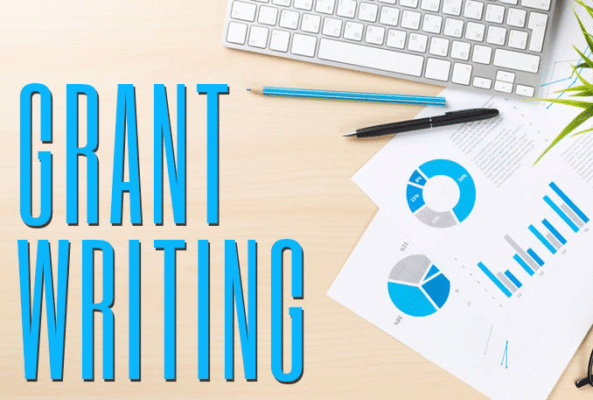Ever wondered why your grant proposals have not been yielding results? Yea, you guessed right; the wrong approach to grant writing.
Nevertheless, this post is sets you on the right path and gives you a template for the right approach.
But it’s first important to note that becoming an awardee of any grant has more to do with proposals which is a function of grant writing. In other words, the right approach to grant writing gets you the grant money at the end of the day.
But before diving into details, let’s take a closer look at what grant writing is all about.
Read Also: Business Valuation: All you need to know [Detailed Guide]
What is Grant Writing?
Grant writing is a medium of completing an application for grants provided by institutions like foundations, trusts, the government and corporations. These processes, however, fall under the generic name, grant proposals.
As mentioned earlier, effective grant writing requires a clear understanding of the grant proposal process; which mainly involves
- Analysis of the intended audience
- Analysis of purpose of the proposal
- Researching on the subject of the grant proposal
- Writing the grant proposal.
- Formatting the grant proposal
- Proofreading and editing the grant proposal
- Submitting the grant proposal
So, the grant proposal process gives a clue of what the right approach should be to grant writing.
Listed below are the necessary steps to effective grant writing.
-
Search for the right funding opportunities
Tons of corporations organize programs offering funding opportunities to help small businesses, colleges, research institutes, art organizations, and universities. But you should realize early enough that not all of these grants are right funding opportunities for you.
In other words, you need to be strategic in your search; otherwise, your grant writing will all be for nothing.
Do you wonder why you don’t get feedbacks after spending quality time writing proposals? This is the reason.
How to be strategic in your search for grants
- Search for grants in your field only –not related fields. So, a farmer should only search for agriculture grants.
- Most fields have sub-niches. So except your business covers every sub-niche in your field, write grant proposals specifically to the sub-niche your business covers.
- Ensure your objectives align with the grants’.
- Finally, always look out for eligibility. You basically don’t want to spend days with your writing only to find out you weren’t eligible in the first place.
Read Also: HOW TO CREATE A WINNING MARKETING PLAN FOR AFRICAN BUSINESSES
-
Run Background Checks
Background checks are simply researches – which is the second most crucial part of your grant writing process.
However, taking a cue from the grant proposal process. You would realize the first three steps basically talks about research even before writing starts. Little wonder why researching is an essential commodity for grant writing.
But what should you be researching on? Well, research focal points include:
- Audience Research
- Purpose Research
Audience Research
Effective grant proposals focus on the interests and objectives of the award agencies. Audience research helps you mould your grant writing to follow the ideals of the funding agencies.
Furthermore, it also helps you get accustomed to their culture to avoid misunderstandings –something you do not want to have to deal with. So you need to establish a connection right from your introduction to your Appendices.
However, these pieces of information are not all that difficult to access. Several large grant-making corporations provide such information on their online platforms.
Purpose Research
Understanding the purpose of the grant proposal gives you ample time to structure your grant writing in the right format.
Consequently, deviations are usually unavoidable half of the time, but this research fosters focus, prospective and helps you stick to the game plan.
Read Also: Writing a brand story the right way. (Detailed guide)
-
Drafting and formatting
A successful purpose research already gives you a baseline and structure to follow in this section, because this is not generic. Basically, the structure of grant proposals differs and is dependent on a lot of factors like the type of organization, type of project, and so on.
However, notwithstanding the variations of structure in the grant writing process, a basic format includes the following:
- Summary
- Introduction
- Plan of Work
- Budget
- Qualifications and Experience
- Appendices
Best Easy Tips For Grant Writing
Beyond the process of grant writing, here are some tips you should take into account.
#1. Pay Close Attention to the Agency’s Main Objectives
If the call for proposals includes keywords—or if the funding organization’s mission or goal includes keywords—be sure to utilize some of those terms throughout your proposal. However, don’t go overboard. You want to make sure that your readers grasp the links between your project and their goals without going into too much detail.
#2. Using Numbered Lists, Organize Your Thoughts
To arrange their thoughts within their submission, some grant writers employ numbered lists. Basic examples of terms they use to create these lists include; “This project’s three key aims are…” or “This plan will involve four stages…” Although using numbers in this manner is not particularly eloquent, it is an effective technique to communicate information in a straightforward and skimmable manner.
#3. Prepare Proposals That Are Unique to You
Because grant financing is so competitive, you’ll almost certainly be applying for many awards from various funding agencies. If you do this, make sure that each proposal is carefully designed to react to each source’s unique interests, expectations, and guidelines.
While you may utilize pieces of one proposal in another, you should never use the same proposal twice. Additionally, if you are applying to multiple sources at the same time, be smart about the type of assistance you are seeking from each group. For instance, investigate which sources are more likely to support a request for materials and which are more interested in covering the expense of personnel.
#4. Pursue All Types of Grants
Pay attention to both small and large grant opportunities. In fact, obtaining a smaller grant might sometimes make your application for a larger award more appealing. Demonstrating that one or two stakeholders have previously expressed interest in your proposal might help you get credibility.
#5. Don’t give up! Continue to Write!
It takes a lot of effort to write a grant submission. It necessitates a thorough examination of your vision and careful consideration of how your solution can effectively address a gap, problem, or lack. Even for seasoned grant writers, this process often ends in rejection.
Despite the fact that grant writers don’t get many of the grants they apply for, they find the process of meticulously defining and justifying their objectives and techniques to be beneficial. Whatever the funding committee chooses, writing about your idea in detail can help you think about and evaluate it. Of course, even if you get a grant, the writing isn’t often done. Many grants require regular updates and progress reports, so be prepared to keep writing!
How Do I Start a Grant Writing?
The following are steps to start grant writing;
- Create a compelling cover letter.
- Begin with a brief executive summary.
- Introduce yourself and your company….
- Make a direct statement about the problem…
- Make a list of your goals and ambitions.
- Declare Methods and techniques for project design
What Is the Grant Writing Process?
Grant writing is the process of submitting an application for funds from a private, corporate, or government source. In order to be considered for a grant, you must submit a well-written proposal to one of these organizations.
Is Grant Writing Difficult?
Grant writing is difficult, challenging, complex, stressful, mind-boggling, and competitive, to say the least. It’s easy to speed through a grant application or cut corners because grant writing is such a demanding task — especially for small nonprofits whose staff members already carry multiple hats.
What Skills Are Needed for Grant Writing?
The most important traits of a good grant writer.
- Grant writers often have to deal with a lot of projects and deadlines at once.
- Basic tech skills.
- Creativity.
- Knowledge of the industry.
- Attention to detail.
- Persistence.
What Should Be Avoided When Writing a Grant?
Here are a few common mistakes you should try to avoid when writing your grant.
- Don’t Work Alone.
- Don’t write a grant if your request is not interesting to the funder.
- Don’t assume that the people who review your grant will be experts.
- Don’t ignore the grant’s instructions….
- Don’t get confused when defining the problem.
Conclusion
Unlike any other proposal, grant writing does not end with grant proposals. It further spins into the post-award phase, which requires full audit reports and a step by step analysis on financial expenditure. This is a crucial part of the life cycle of a grant that ensures transparency and fights funding misuse.
So until these requirements are met, closeout of the grant award does not happen.
However, If you need professional help with this, you can reach out on the comment section.






